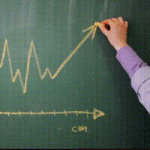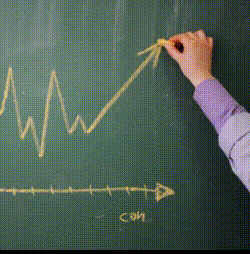Not Using Facebook Offline Events? You’re Missing Out
Facebook Offline Events does something few platforms can: tie online advertising to offline conversions. It is not a new feature in Facebook Ads manager, but few marketers make it a priority in their social media strategy.
Offline event tracking demands significant time and effort to gather customer data, import it into Facebook, and make sure it is consistent. In addition, API integration may demand scarce development resources.
However, businesses with brick-and-mortar presence can reap major benefits. Advertisers can unearth an added layer of conversion metrics driven by their campaign efforts.
If you’re not familiar with Facebook Offline Events, keep reading. If you’re already convinced and want to learn more, read our real-world example, below.
What are Facebook Offline Events?
Facebook Offline Events give advertisers the ability to upload customer data and track which offline events in the customer journey were influenced by their ad campaigns. A custom value can be assigned to each designated event, allowing advertisers to measure their Return on Ad Spend (ROAS) directly within the platform.
Tying your offline conversion events (and conversion values) back into the Facebook ad platform provides advertisers with a level of tracking not otherwise available through the platform. This tracking is the best way for advertisers to track online-to-offline performance for their ad campaigns.
While you may immediately think these offline events only apply to in-store purchases, it also allows advertisers to track phone calls, coupon redemptions, and appointments booked among other offline conversion points. Any action that is not recorded online and may contribute to an eventual conversion is trackable.
Below are a handful of examples where offline event tracking is useful:
- A customer redeems a coupon for a free service
- A customer places an order over the phone
- A customer books an appointment in-person
How Do I Upload a Data Set For Facebook Offline Events?
Getting started with Offline Events on the platform is all about the data set you upload.
When putting together your data set, advertisers must upload the following:
- Customer details (name, email, and/or phone number)
- Event details (if it was a lead, registration, purchase, etc.)
- Event value (the dollar value of the event detail that occurred)
- An accurate timestamp of the conversion event
Ideally, upload your data to the platform daily. The more often your data set is uploaded, the more reliable your data insights will be. Find full details on how to upload a data set to the platform here.
Facebook uses the customer data included in the data set to determine which users converted offline after engaging with your Facebook campaign. The proper attribution model makes tracking more accurate.
What are the Benefits of Using Facebook Offline Events?
Properly using Facebook Offline Events adds a much-needed data layer to any advertiser optimizing their ad campaigns around conversion points that happen offline. We’ve seen advertisers in a wide variety of verticals benefit. Some fit the typical offline conversion model. Others do not.
Harvard Business Review analyzed the value of a like and determined that although engagement on social media does not translate directly to sales, advertising does.
Upwards of 80% of the marketers surveyed couldn’t quantify their social media efforts at that time. Two years later, the issue still exists.
Combine that with the fact that 90% of retail sales still occur offline, and it is likely that your Facebook campaigns are contributing significantly more to the customer journey than you know.
To ensure that your Facebook advertising strategy is getting the proper credit it deserves, companies who operate offline in even the smallest capacity should take advantage of the ability to match offline conversions to their Facebook campaigns.
If your business or customers interact with your brand offline in any way and you’re not tracking offline events, you’re missing value in the tracking of your marketing efforts.
For businesses where conversion points only occur in a physical store, it’s nearly impossible to determine the impact of your digital marketing efforts without some kind of offline conversion tracking. Businesses built purely with physical locations typically have minimal conversion events on their site, making it even harder to determine campaign effectiveness.
For many of these advertisers, the majority of their Facebook campaigns are optimized to build Reach or Brand Awareness. As an advertiser, it can be difficult to wade through the vagueness of the Brand awareness algorithm, especially since the main KPI attached to the objective is estimated and in development.
With offline event data, advertisers can finally put together a closer-to-complete picture showing the direct conversion impact of a social media campaign.
A Real-World Example
We have a client whose only financially-tied conversion points come offline. They have top-of-the-funnel conversions on their site, but those pale in comparison to the importance of their offline conversion points.
Historically, they have used Reach and Brand Awareness metrics as key performance indicators of their Facebook ad efforts.
After putting together a detailed data set, our client uploaded roughly 400,000 purchase events from the last three months to the Facebook platform.
Using their selected attribution window of 7-day click (users who purchased in 7 days after clicking an ad), we were able to directly attribute over 1,000 of those purchases during February.
The ability to upload and track the offline data allowed us to show a ROAS just a touch over 400%.
Without the ability to upload this information and track it using Facebook’s Offline Events, we wouldn’t be able to track the effectiveness of the campaign to the level of granularity we did – taking significant measurement and credit away from the effectiveness of the campaign.
Regardless of the amount of revenue generated offline, any advertiser with an offline touch point can benefit from understanding exactly what events are driven by their Facebook campaigns.
If you are not utilizing offline events through Facebook’s ad platform, you are missing out on a piece of your paid social ROAS.
And for some advertisers, that may be a large piece. For others, it may be just a small sliver, but why leave a stone unturned when tracking the effectiveness of your paid social efforts on Facebook?
The post Not Using Facebook Offline Events? You’re Missing Out appeared first on Portent.





